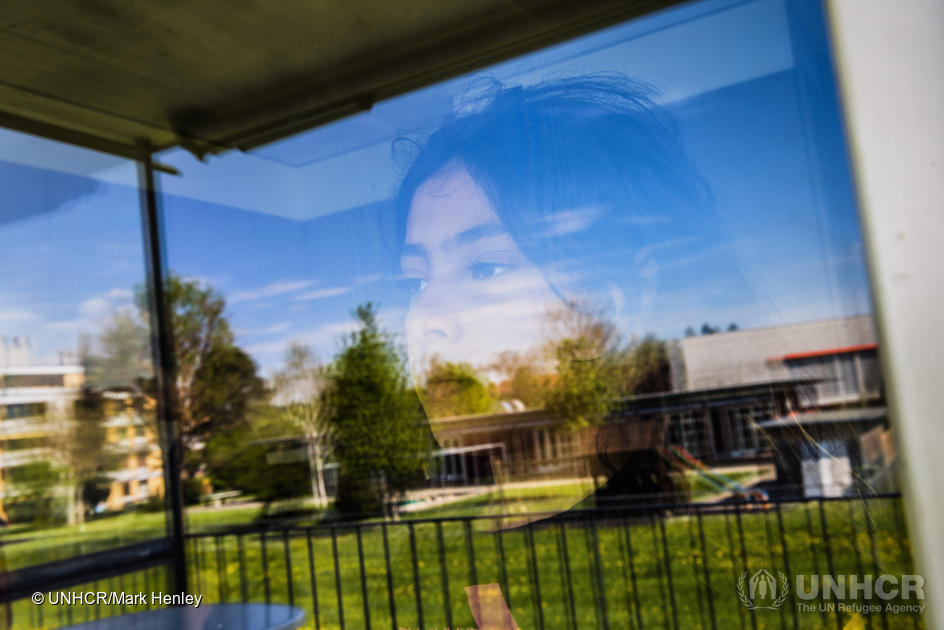Today, a UNHCR-commissioned study analyzing the legal, practical and financial obstacles to family reunification for refugees in Finland is launched. UNHCR reiterates its recommendations to the country in this area.

Switzerland: Maryam, 10, is happy to be reunited with her brother Abdualrahman in Thun, Switzerland after he was separated from the rest of the family at the Syria-Turkey border. © UNHCR/Mark Henley
In the report “Family reunification practices in Finland” the Finnish Refugee Advice Center (FRAC) provides an analysis on the current legal framework, policies and practices regarding the right to family reunification for refugees and beneficiaries of subsidiary protection in Finland. The new study, commissioned by UNHCR, the UN Refugee Agency, also identifies practical, legal and financial obstacles to accessing family reunification.
The findings are based on the examination of legal framework and policies as well as a number of concrete court cases, and it focuses in particular on income requirements in order to be granted access to family reunification as well as the rights of children to a family life. The study concludes with five key recommendations which aim to ensure a more human rights sensitive interpretation of the legal framework on family reunification in Finland.
“Reuniting with family members is crucial for refugees and others granted international protection to rebuild their lives, be able to integrate into society and contribute to their host country. Family reunification can therefore benefit not only the family concerned, but also the wider society. At the same time, family reunification is an important safe and legal pathway to access protection,” says Henrik M. Nordentoft, UNHCR’s Representative to the Nordic and Baltic Countries.
It is UNHCR’s hope that the report just published by FRAC as well as other report and studies will contribute to a continued dialogue with the Finnish Government, and within the region more broadly, to strengthen meaningful and timely access to family reunification. To this end, UNHCR reiterates its recommendations to Finland on strengthening refugee protection which were put forward in March 2019. The recommendations call for gradually improving access to efficient family reunification procedures.
With wars, conflict and displacement separating families across the world, sometimes for years or even decades, family reunification is sometimes the only way for refugee families to be reunited. And with 85 per cent of the world’s refugees hosted in developing regions, family reunification is also a tangible way for states to better protect refugees and share responsibility with large host countries.
Finland has a long tradition of providing sanctuary to persons in need of international protection, and the country is a key partner to UNHCR. The country has received considerable praise not only for its commitment towards quality asylum proceedings but also more broadly for the role it plays in responsibility sharing globally.
UNHCR will continue to engage actively and constructively with partners and authorities in Finland in its continued efforts to strengthen refugee protection and looks forward to contributing towards on-going discussions to this end.
“The right to family life forms one of the most basic human rights. Family reunification enables refugees to enjoy this right, safely and legally, without the need to undertake dangerous journeys to unite with their loved ones. This is especially important for many women and girls. We are in UNHCR looking forward to continue the constructive dialogue with Finland on this and other important issues,” says Henrik M. Nordentoft.
Share on Facebook Share on Twitter